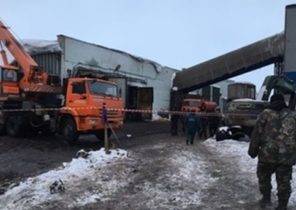
In 2016, China invested in other countries of $183 billion, which is 44% higher than the previous year. This is stated in the report of the UN Conference on trade and development. At the end of last year, China came in second place in the world for foreign investment, and on the ground, the United States, which invested on the world of $299 billion (1% lower than in 2015). China has overtaken, in particular, the Netherlands ($174 billion, an increase of 26%).
It is often possible to meet a cautious attitude to Chinese investment. Supposedly, the expansion of China leads to the fact that, say, weak countries run the risk of even losing their independence. In particular, in Ukraine there is a perception that if China invests in any company, sooner or later, local workers will replace the Chinese. This despite the fact that actually from the point of view of costs, which I think any businessman, the labor force in Ukraine is even cheaper than in China. The level of wages in China is growing, in 2016 he became higher than in Latin America.
In this regard, it is significant to research company Rhodium Group. Five years ago during the American presidential campaign, China was accused that it takes away from Americans jobs. Then RhodiumGroup studies have shown that the investment of China in the United States led to the creation of a significant number of new jobs. We analyzed the contracts signed between 2000 and the first half of 2012, and found that for nearly 12 years the number of employees at the subsidiaries with majority share of China rose from 2 to 27 thousand. The number would have been even better if they took into account enterprises with Chinese minority participation.
According to recent research by the National Committee on U.S. China-us relations, held jointly with the same company RhodiumGroup, 1990-2015. China’s direct investment in the U.S. reached $64 billion.
It is important to understand that first and foremost, China is investing in people, collectives of enterprises, which have important knowledge and experience, as well as in companies from around the world. This high-tech sector with complex technological processes and production, which give a high added value.
For example, significant investments are made in the aviation industry – China seeks to establish its own production. But this does not mean that the production should be concentrated exclusively on the territory of the country.
In 2008, China moved from a planned economy to a market after the merger of the two aviation industrial corporations AVIC. Already in 2009, AVIC was purchased by the famous Austrian manufacturer of aircraft composites FACC. It was the first China to buy European airline. Later, China acquired the us manufacturer of aircraft piston engines Continental Motor and of the aircraft manufacturer Cirrus Aircraft. “This has enabled AVIC new achievements in integration into the international production chain and to increase their capacity to build aircraft for General aviation and engines for them,” – said a top Manager of the Corporation Lin Comin.
While there is much talk about whether or not to allow foreign capital into their own high-tech enterprise. It is often Chinese investment saved the company, who for some reason could not independently solve all problems.
When China Aviation Industry General Aircraft Company was going to buy an American Cirrus Aircraft, manufacturer of quadruple piston aircraft experienced serious difficulties, workers had to reduce. But the politicians of Minnesota, where the headquarters of the company and of the production capacity, were “screaming” that, after receiving access to technology, PRC will use them in the defense industry. The deal was delayed for two years but in 2011 still took place. However, officials of export control of the United States stated that the engine Williams FJ33-4A-19 – product is dual-purpose, and must be replaced by another.
At that time, due to the lack of funding has halted development of a lightweight single-engine jet Visionjet. Thanks to new financial injections, the work has continued, and the result was the car for 7 passengers, the cost of which ($2 million) is almost twice cheaper than the closest analogue. Cirrus Vision SF50 may be the first mass personal jet.
In fairness it should be noted that due to acquisitions in Europe and America, China gets the technology and the ability to expand production in its territory. So, in 2010, Geely bought the automobile division of Volvo, which was owned by American Ford, and is also known for its security technology. In Europe, Volvo’s two plants in Sweden and Belgium. Last fall, representatives of the company Volvo said that production momentum of the group in China will be increased: at the company’s facilities in Daqing will be a S90 sedan in Chengdu – model 60-series, and in Luqiao – 40-series. However, it is rather a question of logistics, which reduces the cost of production. Moreover, for Volvo China is a big market. The plants in Gothenburg, Sweden and Ghent, Belgium will continue to work. And in South Carolina for new plant is built.
At the same time, China bought from Ford unprofitable company, which the financial crisis was just glad to get rid of. Sales of Volvo are growing: in 2016, the world has sold 534 322 cars, which is 6.5% more than the year before. In the company note that a few years ago, sales stood at 400,000 units, and the significant increase is “unprecedented case among global manufacturers.” What is expected of Volvo, if such investor as Geely, not found? Here we can recall the fate of the other Swedish manufacturer, Saab Automobile, which went bankrupt and closed. What was the chance of a deal with a Chinese investment company Youngman, which would allow it to restructure, but among shareholders have a disagreement.
As this example shows, investing in foreign companies, Chinese businessmen, as a rule, guaranteed them a market and in China. The example of Geely not only can lead others. So, in 2008, the Chinese Zoomlion acquired CIFA, the world’s third largest manufacturer of equipment for working with concrete.
“The merger allowed us to become witnesses to the inspiration of new energy and vitality, cooperation Zoomlion and CIFA showed mutually beneficial cooperation model for other Chinese corporations investing in Italy,” – said recently the Chinese Ambassador to Italy Li Jujuy.
Zoomlion equipment for concrete gained the largest market share in China. Thanks to the technology of installation of concrete mixers on truck chassis, developed by CIFA, Zoomlion has also taken a leading position in the global market of truck mixers and concrete pump developed with a 101-meter carbon fiber boom, once in the Guinness book of records.
After all, as stated at the summit of the world economic forum in Dalian NewChampions Premier of the state Council of China Li Keqiang, China provides “fair and equal treatment both to foreign and domestic firms”, and does not protect only their own company. And it’s not just words, to support the business. For example, China Railway as the main compositions of the high-speed trains uses exclusively German trains from Siemens, made in Germany.
The examples given are examples of major Chinese investments that have been made recently, but the past tense has the opportunity to evaluate the result. And they well illustrate that the fears that have been the Europeans and Americans, were far-fetched. Perhaps they were on a subconscious level from earlier times. But their place must come the realization that the world has changed, is the increasing globalization, and China is in step with her.







